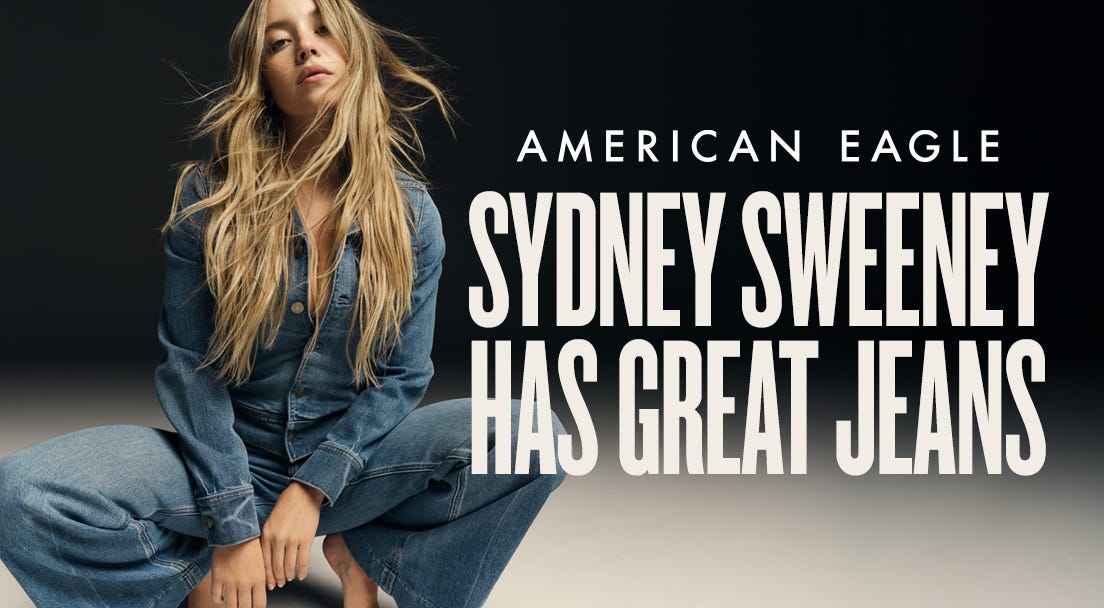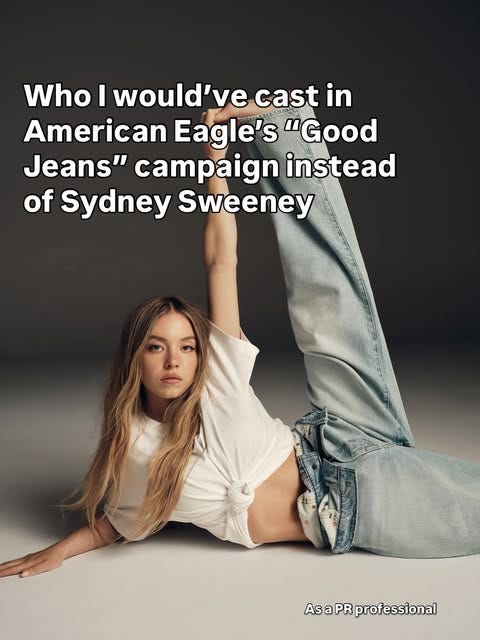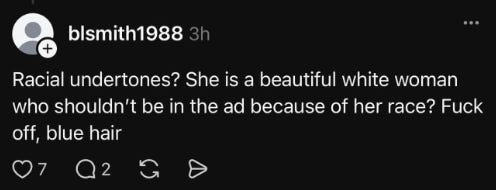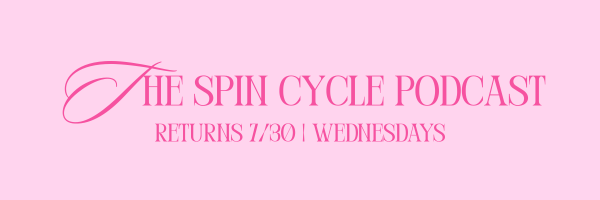The Skinny
Recently, American Eagle launched a new “Good Jeans” campaign starring Sydney Sweeney, a tongue-in-cheek play on words, out of context. However, within the context of the current cultural climate in the States, a script nodding to blonde hair and blue eyes being seen as the ultimate blessing, and visuals leaning into Americana and old-school ad tropes (read: sex appeal), it’s easy to see how similar this feels to propaganda of a certain time period.
Naturally, the internet had questions, especially around the layered implications of the “good genes” phrase, given the racial and eugenicist undertones that phrase has historically carried. And that’s where I chimed in.
My 2 Cents
I posted, “If I had worked on the campaign, I would have recommended choosing a successful “nepo baby” known for having two famous parents. This would allow the brand to utilize the fun play on words without the racial undertones.” The people I pitched? Gigi and Bella Hadid, Blue Ivy Carter, Willow Smith and Maya Hawke.
I picked them specifically because they each have two famous parents, poking fun at the nepo baby conversation, which would then draw attention away from the controversial subject of genetics. This route would play into the cultural moment and keep the “good jeans/genes” pun intact, but with a wink toward an ongoing social conversation around talent, instead of biology.
When I posted this suggestion, I wasn’t expecting backlash. I didn’t share a personal takedown of the campaign or claim offense. I simply offered a more playful, culturally aware alternative. But the reaction? Full-blown MAGA meltdown.
Suddenly, I was being accused of “reaching,” “making something out of nothing,” and “manufacturing outrage.” MAGA-types flooded the comments, furious that I’d even imply American Eagle had made a misstep. The irony? I was doing the thing brands literally hire people like me to do: offer thoughtful, culturally aware alternatives before something becomes a real problem.
You can’t put the toothpaste back in the tube. Once the backlash reaches a fever pitch, it’s a danger to both the brand and the talent.
Where This Leaves Us
This is a perfect case study of where we are as a country. Because one of two things happened:
A brand intentionally used a racially coded dogwhistle to appeal to the very demographic now defending them in my comments.
Or
The room where this campaign was concepted and approved was so white, so male, and so lacking in perspective that no one even noticed how it might read.
And I’ve seen this happen firsthand. I’ve had to kill more than a few ideas in my own day-to-day work—not because I’m hypersensitive, but because I know how these creative choices land. I know what audiences will read into them. I know when something is off, even if it’s not intentional.*
This wasn’t outrage for the sake of it. It was a call for more thoughtful, inclusive storytelling. And the fact that even that triggered such a defensive response? Well, that says it all.
*reserving my thoughts about whether or not it was actually a dog whistle





